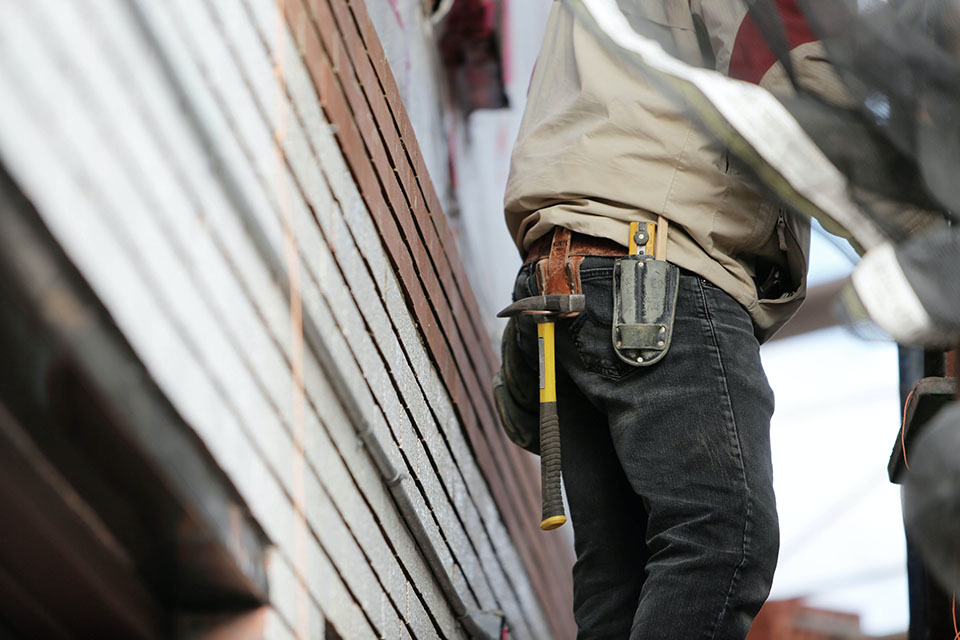At one point or another, every home needs a little bit of attention. Maybe the door sticks during the summer months. Maybe the shower drips. While these issues all need to be resolved, you wouldn’t describe any of them as urgent. But every once in a while, a home will have a time-sensitive issue where the stakes are high. And those are the issues that require emergency maintenance.
So, let’s take a closer look at emergency maintenance and how property managers tackle it.
What are considered “Emergency Maintenance” issues?
Emergency maintenance is when you’re resolving an issue that poses an immediate threat to the residents or the property. So, that includes any direct threats, like fire, flooding, and natural gas leaks. It also includes any indirect threats, like when the heating fails during a really cold month. You can also think of emergency maintenance as any issue that’s really time-sensitive, like when a resident loses power, a fridge breaks, or the only toilet in the unit is clogged. Those are considered to be emergencies because they affect the core livability of the unit.
As you might expect, some emergency maintenance involves emergency services. And that, of course, means contacting 911. This applies to the most urgent threats to people and property, like fires, floods, and gas leaks. Calling 911 immediately is critically important, especially in a situation where every second matters. When a resident’s front door won’t lock, however, that doesn’t require a 911 call. It definitely requires emergency maintenance, as the resident’s safety is compromised. But if there’s no immediate threat, you can call a locksmith instead of 911.
Establishing priorities and determining who is responsible for addressing issues
But as you know, not all fixes are an emergency. So, a big part of emergency maintenance is understanding which problems can wait. For example, let’s say that a dishwasher breaks, the shower is draining slowly, or the garbage disposal isn’t working. Those are all valid concerns, but their resolution doesn’t need to be fast-tracked. In fact, these issues need to be stepped aside to make way for emergency maintenance. Understanding and creating this sort of hierarchy is a huge part of making sure that the most pressing issues are escalated and handled right away.
This also highlights the key distinction between issues that are the responsibility of the HOA, and issues that are the responsibility of the unit owners. A broken dishwasher may be very inconvenient, but because it doesn’t affect the common parts of the building, it’s up to the owner to get it fixed. Alternatively, if a washing machine in a building common area breaks, that would be the responsibility of the HOA.
How to minimize the need for emergency maintenance
It’s important to approach this with the understanding that the smaller issues of today can easily become the larger issues of tomorrow. So, nipping the small problems in the bud is a huge part of reducing the need for emergency maintenance. Here’s how to do that:
Stop any progressing damage as soon as possible
If you see or hear something, say something. Let’s say that you’re walking through the property and see a little water-spotting on the ceiling in the hallway. Sure, that might appear to be a minor problem. But it could also be a symptom of something major going on behind the scenes. So, be sure to notify your property manager, so they can schedule an inspection right away. If you hear something out of the ordinary, maybe the HVAC unit makes a loud screeching noise, that might be a sign of an issue with the compressor. Even if it’s not an urgent issue today, it’ll quickly become an urgent issue if everything comes to a head while the temperatures are more extreme. You’ll always be glad that you notified your property manager, so that they can have a professional come out to take a look.
Report minor issues. If there’s a new and unexplained drip coming from a pipe in the parking garage, you might be tempted to wait until a larger issue manifests. But especially when you’re dealing with plumbing, those issues can accelerate quickly. So, you’ll definitely want to commission a full inspection while the issue is still manageable.
Schedule preventative maintenance
Make sure that you’re scheduling and following through on all of the routine maintenance. That includes plumbing maintenance on the main drain lines, an assessment of the electrical systems in older buildings, testing of the fire alarms, and beyond. It also includes inspections of the community grills, sump pumps, and fireplaces. Some people worry about the cost, but it all seems pretty affordable when you compare it to the cost of something going wrong.
Communicate with residents about safety
Every resident should have a clear understanding of safety procedures. That means that the property manager needs to conduct emergency drills and create a code of conduct around fire hazards, like candles, dryer vents, fire pits, and community grills. It also means creating a clear way for residents to report maintenance issues, whether they’re doing that through an online portal, a phone number, or both.
If something happens, consider filing an insurance claim
Many types of emergency damage are covered by insurance. This may be through the building’s general policy for issues that are the responsibility of the HOA, or the owner’s condo insurance if it’s something affecting just the interior of the condo. In either case, if you decide to file a claim after considering your policy deductible, it’s important to notify the carrier timely and document any damage with photos before anything gets fixed.
Emergency maintenance made easy
Emergency maintenance can be a stressful, but necessary part of servicing a property. Here’s the good news, though; it all starts to feel a lot more manageable when you stay on top of the preventative maintenance, nip issues in the bud, and make the residents your partners in safety.
If you’d like to learn more about emergency maintenance, or need help managing an HOA, contact Hales Property Management today. And visit this link to read more about how Hales makes your day-to-day easier.



